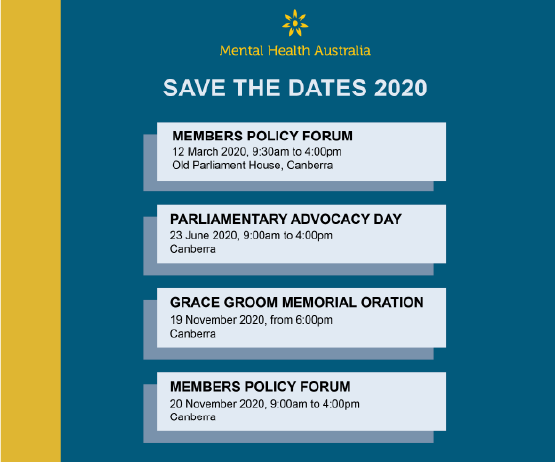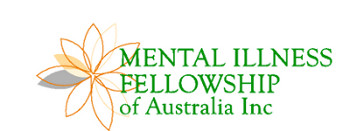Cultural responsiveness is a necessity
Most Fridays we stop to have lunch together in the Mental Health Australia office. It’s a nice tradition where we get some time to catch up and chat about the week that was and the weekend ahead. And eat something delicious!
Last week, staff at Mental Health Australia had lunch from a local Chinese restaurant in Canberra. We did this to support a campaign #IWillEatWithYou, whereby diners are encouraged to eat from their favourite Chinese restaurants and Asian grocers. The campaign was launched to counteract the downturn in trade that Chinese businesses have seen due to fear of the coronavirus (COVID-19).
Whilst acknowledging the real threat to public health that coronavirus presents, it has been incredibly disappointing to see fear quickly turn into abuse and discrimination.
People shouldn’t need to be reminded that ethnicity has nothing to do with viral transmission. Yet sadly that is exactly what multiple institutions have had to do – most recently at the Royal Children’s Hospital in Melbourne, where both staff and patients have reportedly been racially abused due to panic about who might be likely to spread the virus.
Amidst this, our partner the Federation of Ethnic Communities’ Councils of Australia (FECCA) has called for a “national anti-racism strategy and campaign designed to address the rising tide of subtle racism and discrimination in the community”, an initiative Mental Health Australia strongly supports.
It is environments like this that make cultural responsiveness and understanding so crucial in our provision of mental health services.
FECCA, along with the National Ethnic Disability Alliance (NEDA), have been our partners over the last few years as we developed and launched Embrace Multicultural Mental Health (the Embrace Project). The Embrace Project’s aim has been to provide a national focus on mental health and suicide prevention for people from culturally and linguistically diverse (CALD) backgrounds.
The team have been running workshops over the past six months for service providers, exploring the Framework for Mental Health in Multicultural Australia (which I encourage you to have a look at and adapt for your workplace). The workshops have been productive and fruitful, and we have been heartened to see so many services nationally taking the opportunity to improve their cultural competency.
We have heard time and time again from the Embrace Multicultural Mental Health CALD consumer and carer group how valuable it is to have service provision that takes into account their cultural heritage and the way it impacts their experience of mental health.
With almost half of all Australians either born overseas or with a parent who was, being culturally responsive is really not an option for healthcare providers, especially mental health service providers – it is an urgent necessity.
Kind regards,

Melanie Cantwell
Acting CEO

Embrace Multicultural Mental Health News
|
|
The Framework for Mental Health in Multicultural Australia (the Framework) is a free, nationally available online resource which allows organisations and individual practitioners to evaluate and enhance their cultural responsiveness. It has been mapped against national standards to help you meet your existing requirements, with access to a wide range of support and resources.
Embrace Multicultural Mental Health (the Embrace Project) has been holding free workshops around Australia across 2019-2020 to support implementation of the Framework by mental health services, Primary Health Networks, individual practitioners and others. The workshops provide an overview of the Framework and explore how it can be tailored to best meet your needs and the needs of your local community.
Workshops for 2019 have now ended. Remaining workshop dates for 2020 are listed below:
- NT: Mercure Darwin Airport Resort, Marrara, 26 March 2020
Please click here to register for a workshop near you.
Darwin will be the final Workshop for 2020, but please stay tuned for news of our next webinar.
|

|
Survey shows community services and workers at risk from funding uncertainty
Community service leaders across the country are concerned that the Federal Government is yet to commit to the continuation of funding put in place to ensure staff can be fairly paid in this important sector.
Read more
Number of Australians living with dementia to rise
Dementia Australia is proud to launch The Dementia Guide, a comprehensive resource to support people living with dementia, their families and carers. Updated figures show that in 2020 the number of Australians estimated to be living with dementia has increased to 459,000.
Read more
Greater support for Australians with an intellectual disability
Minister for Health, Greg Hunt, says Australians with an intellectual disability will soon receive greater support, thanks to a Morrison Government $6.5 million investment in the Primary Care Enhancement Program.
Read more
Independent academic research confirms that cashless debit card is stigmatising
The first independent study of the cashless debit card and income management, conducted by researchers at the University of Queensland and Monash University, has found 84% of people surveyed had experienced stigma and shame while using the card.
Read more
|
|
|
|
On Tuesday, Director – Policy and Projects Harry Lovelock, will be meeting with some of Mental Health Australia’s member organisations in Melbourne.
Also on Tuesday, the Mental Health Australia Governance Committee will be meeting via teleconference.
On Wednesday and Thursday, the Embrace Multicultural Mental Health team will be in Perth running workshops on the Framework for Mental Health in Multicultural Australia.
|
|
|

Mental Illness Fellowship of Australia know from experience that recovery of a better quality of life is possible for everyone affected by mental illness. They work with and alongside participants and members of their organisations in every program, whether as staff, managers, peers, volunteers or board members. Peers - consumers, carers, families, friends - are at the heart of all their program design, governance, delivery and evaluation - and their services are better for that. They work closely with families, carers and friends as well as the person with a mental illness, including those who are hard to reach. Their objectives are holistic - they work to assist individuals and families in their journey to recover mental health, physical health, social connectedness and equal opportunity in all aspects of life.
Website - www.mifa.org.au Facebook - www.facebook.com/mifaoz Twitter - www.twitter.com/mifaoz

Working in partnership, Ruah Community Services aim to empower and inspire their clients to achieve their personal aspirations.
Vision - Flourishing communities through active participation and wellbeing of people with complex needs.
Mission - Empowering vulnerable and disadvantaged people to create meaningful change in their lives through provision of quality support services.
Values - Respect, Grassroots, Partnerships, Integrity, Creativity.
Website - www.ruah.org.au Facebook - www.facebook.com/ruahcs Twitter - www.twitter.com/ruahcs
|
|
MHCC Webinar: NDIS Practice Standards
Join this webinar from the Mental Health Coordinating Council to learn about quality, safety and information management for psychosocial providers under NDIS Practice Standards. Hear from Sherie Avola, NDIS Quality & Safeguards Commission, and Fiona Loughlan, Institute for Healthy Communities Australia. The webinar is titled: NDIS Practice Standards in Psychosocial Support Services Core Module 2: Governance, Operations, Risk, Quality and Information Management.
This webinar is part of the Embracing Change project, and will be held on March 5 at 11am.
Read more and register here
Exploring the impact of caring on sleep health
Are you a carer who struggles with sleep? Does your caring role mean late nights and early starts with broken sleep in-between? Carers Australia wants to hear from you! They have commissioned a second study into how being a carer impacts sleep, looking at what strategies are currently being used to aid sleep and provide recommendations for how carers can improve their sleep. Follow this link contribute to the study by completing a short survey!
Read more
CMHA 3rd National NDIS and Mental Health Conference
The NDIS rollout is largely complete and now is the time to look forward as to what comes next. Community Mental Health Australia are pleased to announce their Third National NDIS and Mental Health Conference will be in partnership with the Mental Health Coalition of South Australia. It will be held at the Adelaide Convention Centre from March 30-31, 2020. Keynote speakers include Professor Mike Slade and Dr Louise Byrne.
Register now
Read more
|
|
|
![]()







